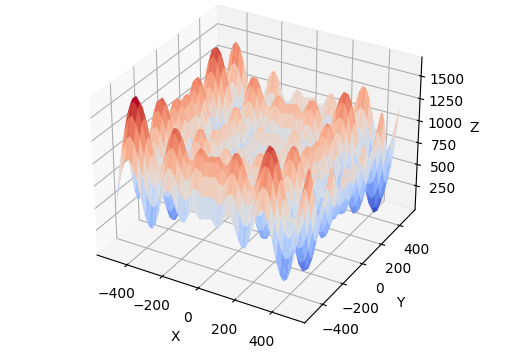Productive Fitness in Diversity-Aware Evolutionary Algorithms
Thomas Gabor and Thomy Phan and Claudia Linnhoff-Popien.Natural Computing (NACO), pages 363--376, 2021.
[abstract] [bibtex] [doi] [pdf]
In evolutionary algorithms, the notion of diversity has been adopted from biology and is used to describe the distribution of a population of solution candidates. While it has been known that maintaining a reasonable amount of diversity often benefits the overall result of the evolutionary optimization process by adjusting the exploration/exploitation trade-off, little has been known about what diversity is optimal. We introduce the notion of productive fitness based on the effect that a specific solution candidate has some generations down the evolutionary path. We derive the notion of final productive fitness, which is the ideal target fitness for any evolutionary process. Although it is inefficient to compute, we show empirically that it allows for an a posteriori analysis of how well a given evolutionary optimization process hit the ideal exploration/exploitation trade-off, providing insight into why diversity-aware evolutionary optimization often performs better.
@inproceedings{ gaborNACO21,
author = "Thomas Gabor and Thomy Phan and Claudia Linnhoff-Popien",
title = "Productive Fitness in Diversity-Aware Evolutionary Algorithms",
year = "2021",
abstract = "In evolutionary algorithms, the notion of diversity has been adopted from biology and is used to describe the distribution of a population of solution candidates. While it has been known that maintaining a reasonable amount of diversity often benefits the overall result of the evolutionary optimization process by adjusting the exploration/exploitation trade-off, little has been known about what diversity is optimal. We introduce the notion of productive fitness based on the effect that a specific solution candidate has some generations down the evolutionary path. We derive the notion of final productive fitness, which is the ideal target fitness for any evolutionary process. Although it is inefficient to compute, we show empirically that it allows for an a posteriori analysis of how well a given evolutionary optimization process hit the ideal exploration/exploitation trade-off, providing insight into why diversity-aware evolutionary optimization often performs better.",
url = "https://link.springer.com/article/10.1007/s11047-021-09853-3",
eprint = "https://link.springer.com/content/pdf/10.1007/s11047-021-09853-3.pdf",
publisher = "Kluwer Academic Publishers",
booktitle = "Natural Computing",
pages = "363--376",
keywords = "evolutionary algorithm, diversity, adaptive fitness",
doi = "https://doi.org/10.1007/s11047-021-09853-3"
}
Related Articles
- T. Gabor et al., “Preparing for the Unexpected: Diversity Improves Planning Resilience in Evolutionary Algorithms”, ICAC 2018


